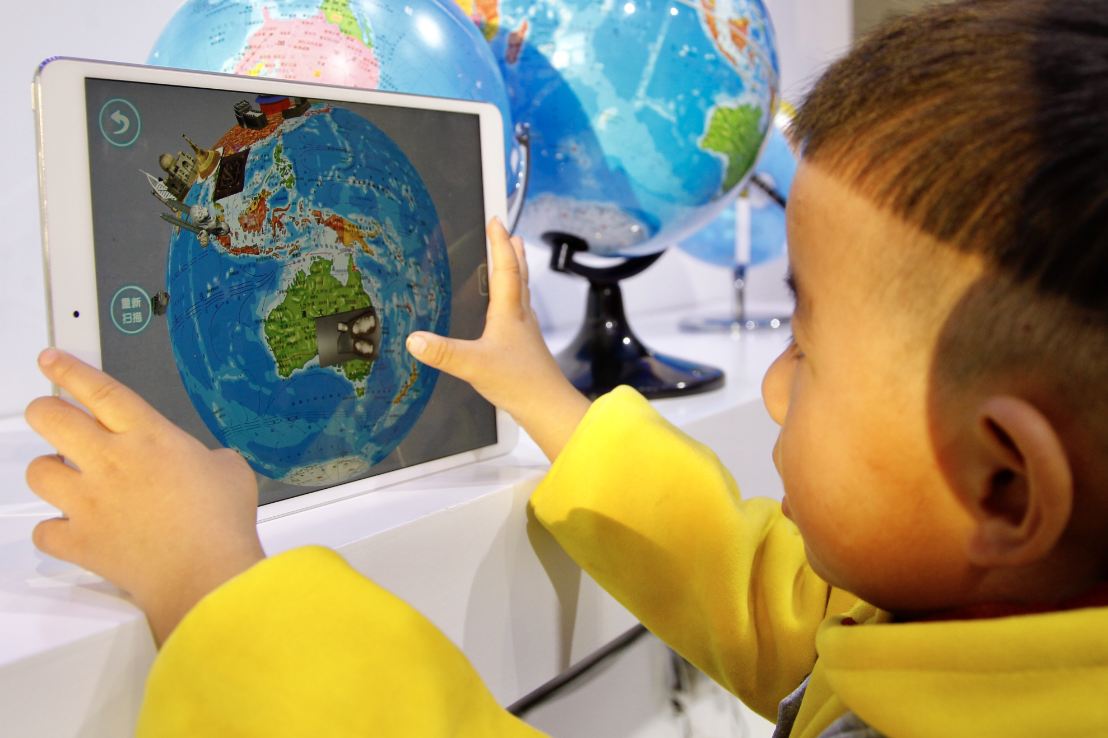Ed tech sharpens tender minds, but ...


Stuffed dolls and sandbags - those were my playthings when I was a kid. I must have been from Venus. My 10-year-old nephew is from Earth for sure. His toys are a smart watch, iPad and, wait for it, a small, intelligent robot.
He is just in his third grade at the primary school, but technology is part and parcel of his life already. And technology is also transforming how young parents care for their children.
My elder brother's wife told me as a child, she didn't have many tech products for toys. When her son (my nephew) turned 5, she promptly gifted him a smart learning pad.
"We're living in interesting times. The world has changed. Kids need intelligent gadgets to learn. I don't want him to lag behind others," she said.
China accords top priority to education. Since 2016, the government has invested over 3 trillion yuan ($438 billion), or around 4 percent of national GDP, annually on education.
Chinese "tiger mums and dads" - it's a reference to new-age parents who have high expectations of their kids - are willing to spend big money for high-quality education.
"Such education can help our kids achieve what we couldn't," said my sister-in-law, a home-maker.
She probably has a good point. Today's kids are brainier, I think. As my nephew grew up from a kid into a curious, intelligent boy, he would pester his parents with millions of questions: Why is the earth round? Why does a snake slither in a zigzag way rather than move in a straight line? Why are carrots in the neighborhood vegetable market cheaper than in the hypermarket? Why can't the car run on water as fuel if old railway engines could chug along on steam?
If parents get tired answering such endless questions, the kid's natural quest for knowledge may get blunted. What if the brainy kid's seemingly insatiable curiosity is matched by an encyclopedic, adorable, always-on robot?
Well, magic ensues. Not just the kids, even parents end up broadening their ken. The other day, my brother loaded the robot hard-drive with 20 e-learning materials. My nephew can't have enough of knowledge. For him, learning is play time.
Wait a second - are we overdoing this ed tech-for-kids bit? As a society, are we placing undue burden on young, tender brains? Is it essential to mix up play and learning all the time?
My friend Tatiana Zhu, a psychology student, said modern technology may be trying to make up for ever-busy, stressed-out working parents who have lost the capacity for empathy.
"Unlike traditional toys, tech features make modern learning tools appealing to children for a longer period of time," Zhu said.
Her words find an echo in a latest report from the Qianzhan Industry Research Institute, which said a conventional toy can sustain interest in 95 percent of kids for no more than six days. So, clearly, ed tech toys enjoy an edge in this context.
But, the current rush for them, Zhu said, also seems to reflect Chinese parents' unreasonable expectation that their kids should keep growing their knowledge endlessly, to survive and thrive in a fiercely competitive world.
"The advent of educational technology products could be an indicator of the anxiety of Chinese parents to enable their kids to catch up with their peers without lagging behind," she said.




































